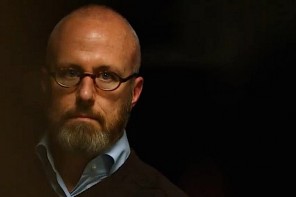Rich Wyler was featured in a National Public Radio segment today as an example of someone who had changed from gay to straight. Oddly, the report omitted mention of the gay change group Wyler co-founded, People Can Change. The main outreach of PCC is the Journey into Manhood weekend. JIM promotes the usual reparative therapy concept that men are gay because they do not have a secure sense of masculinity, most often because they were too close to their mothers and did not bond well with father. The NPR report notes Wyler’s self-diagnosis but obscures the methods he uses to treat himself. Rather than a cerebral discussion of family dynamics as portrayed by NPR, JIM promotes skin-to-skin therapy, where men retreat for a weekend with other same-sex attracted men to hold each other for the purpose of establishing closeness to other men. They believe such activity establishes a more platonic bond with men which helps extinguish homosexual attractions.
Writer Ted Cox infiltrated JIM, and began his account of the weekend by describing the “Motorcycle” hold:
I don’t remember exactly when I felt his erection pressing into my back. It might have been while he whispered in my ear, “Long ago, you were the Golden Child. But, somehow, that Golden Child was hurt, and you put up a wall to protect yourself.”
While talking about parents happens at a JIM weekend, there is a whole lot of action as well. Cox describes one particularly disturbing method:
What I saw and experienced at JIM both enraged and disturbed me. I had trouble staying in character as I watched one man, as part of his therapy, act out beating his father to death with a baseball bat — just one of several “Are you kidding?” moments.
These highly provocative techniques and the touch therapy are two reasons why JIM is considered fringe, even within the ex-gay movement. Even Exodus International, the leading evangelical gay change organization, has a policy rejecting touch therapy and thus does not recommend JIM.
As noted by the NPR report, the American Psychological Association examined sexual orientation change efforts in a 2009 paper. While the psychologists recognized that living congruently with one’s religious beliefs can be an acceptable goal, they also pointed out that evidence for sexual reorientation was insufficient to warrant a psychologist’s involvement in such therapy. Furthermore, the APA report noted evidence that for some clients, the attempt can compromise mental health. And a recent study in the Christian journal Edification reported that LGB people in heterosexual marriages reduced frequency of homosexual behavior modestly over time, but on average, did not show any change in sexual orientation. The NPR report obscured both Wyler’s controversial method and its questionable results.




